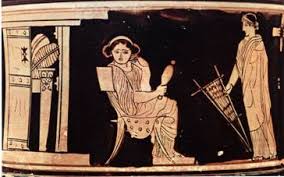|
Lucrezia Marinella, Venetian 17th century philosopher, wrote lives of saints, romances, and a famous contribution to the Querelle de Femmes in which she defended women’s superiority to men, turning some of Aristotles’ arguments on their heads: The Nobility and Excellence of Women, and the Vices and Defects of Men (1601). Women, she said, should work to develop their intellect, naturally superior to men’s, and to do so, they should not be confined to the home. Then, at the age of 74, she apparently recanted all this in a final book, Exhortations to Women and Others if they Please (1645), claiming that “A woman’s reputation must not leave the walls of her home”. Women, she seems to argue, this time following Aristotle, ought not to pursue an intellectual life, but should focus on the domestic arts and virtues. This is what they are naturally suited for, and what will make them, and their husbands, happiest. What happened there? Did Marinella simply become more conservative as she grew older, denying younger generations of women what she had taken for herself? That’s possible, but before we demote Marinella from the ranks of feminist heroine to those Boomerdom, let’s consider other possibilities. First, let’s look at what the Exhortations have to say about domestic work, its value, and whom it is good for. Marinella’s spin on Aristotle |
AboutThis is where I blog about my new book project (under contract with OUP): a history of the philosophy of the home and domesticity, from the perspective of women philosophers. Archives
March 2024
Categories |
Proudly powered by Weebly



 RSS Feed
RSS Feed